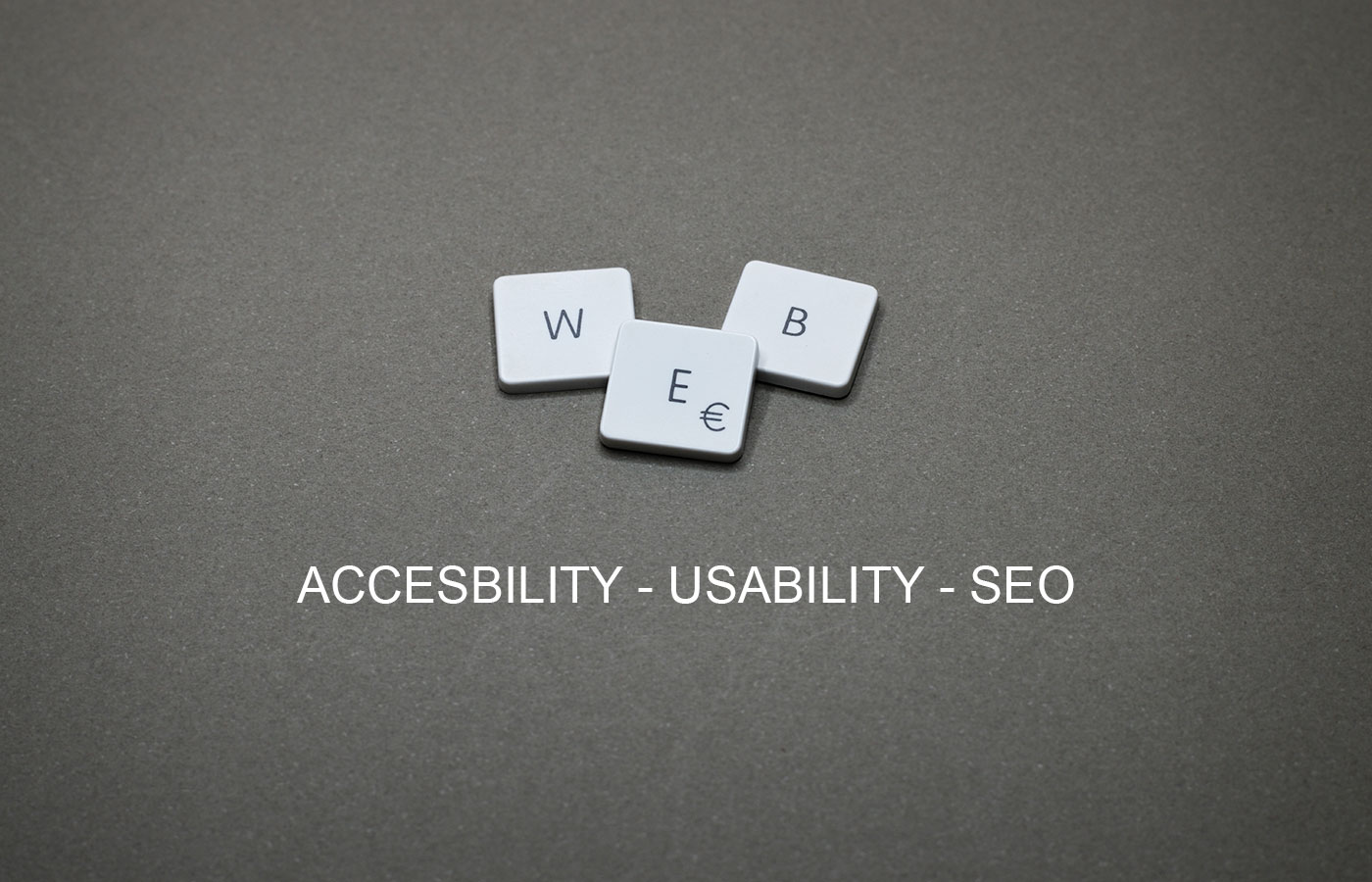Web Accessibility principles match the principles of good web usability and on-page Search Engine Optimization (SEO). An accessible website will offer great user experience and improve your on-page SEO. Here is how.
Search robots and screen readers need good HTML mark-up
Web designers who specialize in on-site SEO know that a website will rank higher in search results if the pages follow the hierarchical structure. This means that the main title is in the H1 heading, subheadings are in H2. Titles, Divs, Headings, Paragraphs, and Lists are used to mark-up a page so that the search robots can adequately understand the hierarchy of information and its relevance.
Descriptive titles and headings improve accessibility, SEO, and usability
People do not read websites word-for-word but scan through the headings. That is why it is important to use titles and headings that carry information. When writing good, descriptive headings, try using your keywords to improve on-page SEO.
Descriptive titles and headings also lead to better website usability. Companies often overlook usability and concentrate on SEO or technical accessibility. The result is a website that is technically accessible but not user-friendly.
Meaningful titles and headings improve both usability, accessibility, and on-page SEO.
Text alternatives provide information for both search engines and for screen readers
Using text alternatives for all non-text elements is one of the main requirements for making a website accessible for people with disabilities. Both screen readers and search robots rely on text. They cannot interpret images, videos, or audio files. However, the trick is to make sure the alt text is humanly-readable and self-explanatory for people with disabilities.
Alternate text for all non-text elements provides screen readers and search robots with information about an object and adds valuable keywords to the website.
People prefer simple language over industry jargon
People, in general, appreciate a website written in plain English. People with cognitive disabilities – learning problems, autism, attention deficit disorder, dyslexia, brain injury, Down Syndrome – find websites written in stiff marketing speak extremely difficult to understand. And let’s not forget that for many people English is a second language. Copywriters should aim for grade eight reading level when writing a copy for any website, not just for Web Accessibility.
From an SEO point of view, people are likely to search the web using simple words than industry jargon if you are approaching the general public. Using simple language will replace odd terms with more common keywords people search for and ensure that more people understand what you do.
Use descriptive, keyword-rich links
Imagine a Useful Links page with forty useful links presented one after the other:
For hours of operation, Click here >>
For information on how to submit a complaint, Click here >>
When a person sets his screen reader to scan the links, it will read them as follows: “Click here. Link. Click here. Link. Click here. Link…”
Therefore it is essential to link the whole descriptive word phare e.g. “Opening Hours >>” use descriptive sentences that tell people and robots where the link leads to.
Make sure to leave extra space between the links. People with arthritis, shaky hands may not be able to click on links placed too close together.
Making these adjustments will make a website more accessible for seniors, as they experience similar issues as people with disabilities – vision problems and shaky hands. Seniors are known to have a systematic approach to websites. They like to know where a link takes them and appreciate descriptive links.
And finally, descriptive and keyword-rich links provide information for search robots and will significantly improve your on-page SEO.
Better rankings in search results should be good enough reason to make a website accessible.

